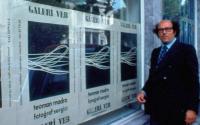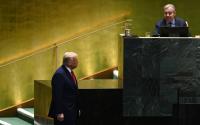15 October 2007Caren Bohan
U.S. President George W. Bush said on Monday his administration's approach of emphasizing voluntary approaches to address climate change was working and he denounced Kyoto-style mandatory caps as "bad policy."
Bush's comments were the latest sign that his opposition to binding emissions caps remains firmly entrenched, even as he has made efforts to show he wants to be more engaged in the global debate on climate change amid sharp criticism from other countries.
"The fundamental question is whether or not we will be able to grow our economy and be good stewards of the environment at the same time," Bush said during a question-and-answer session after a speech on the U.S. budget in Arkansas.
"I'm interested in good policy. Kyoto, I thought, was bad policy," Bush said.
The critique of the 1997 Kyoto Protocol came days after former U.S. Vice President Al Gore and the United Nations' Intergovernmental Panel on Climate Change were awarded the prestigious Nobel Peace Prize for their efforts to raise awareness about climate change.
The Nobel win for Gore, who helped negotiate Kyoto, prompted speculation over whether it would add to pressure on Bush to shift his approach on global warming and accept the kinds of mandatory caps that many European countries view as necessary to tackle the problem.
Soon after taking office in 2001, Bush rejected the Kyoto Protocol, which sets limits on industrial nations' greenhouse gas emissions.
But he has said he wants play a significant role in helping to negotiate a successor to Kyoto, which runs out in 2012. Last month, the United States held a conference of major emitting countries on global warming.
At the conference, Bush said he thought the United States could be a leader in the climate debate, but he found himself isolated from many of the other participants as he pushed his idea of "aspirational" goals that individual countries set on their own and continued to reject tougher approaches.
Bush contends mandatory caps would hurt the U.S. economy.
"We're different from other countries in the world," Bush said. "Whatever we're doing is working because last year we grew our economy and the gross amount of greenhouse gases we put in the environment actually went down."
A U.N.-sponsored session on climate is due to take place in December in Bali, but analysts say the lack of any signals of a change in the U.S. position have left slim prospects for a breakthrough.
http://www.reuters.com/article/politicsNews/idUSN1537871920071015?pageNumber=1






